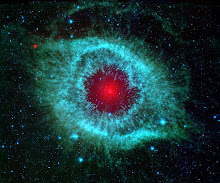According to Lawrence Lessig, in Remix, his latest book about the intersection of copyright law and culture (2008) because of the new affordances of technologies we have moved from what he calls a ReadOnly to a ReadWrite society. This has enabled the formerly passive consumer of media to become an author, a re-mixer, in ways not imagined when copyright law was established. He treats peer to peer (p2p) music filesharing as a particular case of a popular practice that our kids engage in which puts them in the category of criminals. He argues that it is critical to figure out how to de-criminalize p2p file sharing while still compensating artists for their work. “to the extent that kids view the laws regulating culture as senseless, or worse, corrupt, that makes them less likely to obey those laws” (283).Lessig calls himself a fighter “against copyright extremism” (293) and offers many stories about ordinary citizens who purposely or inadvertently transgress copyright protections. He says “there is no justification for the copyright war that we wage against our kids… let’s get on to the hard problem of crafting a copyright system that nurtures the full range of creativity and collaboration that the Internet enables: one that builds upon the economic and creative opportunity of hybrids and remix creativity” (294).
So… about p2p music filesharing—I asked two students, both 17, about the practice. James told me he has downloaded about 8000 songs to his computer in the last year. He understands it is not legal, which is why he had to hurry up and harvest as much music as possible before somebody turns off the tap. For now he doesn’t need to add any more to his stash:
“It will take me a while to hear all of what I already have” he says.
He starts to talk about Yoyo Ma.
“I’m learning about him right now—he’s so fascinating. He’s got a broad perspective and he’s considered the best cellist in the world. “Ecstasy of Gold”, from that movie the Good the Bad and the Ugly—one of the greatest westerns, right? The piece is by a guy named Ennio Maricon. Yoyo Ma is playing it with the Roma Symphonetta and it is the best thing I’ve ever heard. Before I discovered what’s out there” (meaning the Internet) “I used to listen to System of a Down and now I see that stuff is lame, commercial—I have expanded my horizons to a world that I have to know. I am studying music theory; I want to learn instruments, besides the guitar and harmonica. I like Mahler, and Brahms and I have Iron Butterfly’s songs on solo piano and Crosby, Stills and Nash’s music played as bluegrass, and complete discographies of Jimi Hendrix and Eric Clapton and the Byrds and bob Dylan and Pink Floyd—and a lot more. This is what I want to do with my life now—something about music.”
Are you stealing this from these artists? I ask him.
“Well, maybe—I guess you could say that” James replies. “But it’s not like I’m depriving anybody of sales—I don’t have any money. I’m in high school—I don’t have a job and no transportation and no time to have one either. So nobody is losing money on me—I am just learning about music however I can. That’s how I see it.”
I also asked his friend, Melanie, what she felt about p2p filesharing.
“Sure, I have some songs I downloaded. Not like James—I’m not a freak like him. But my family doesn’t have that kind of money. My dad works two jobs as it is, and my mom has had some health problems. I just want to be part of it. Know what my friends listen to. I can play music while I do homework and that is great. The world is such a negative place right now, and music helps you feel better—right? Why is it wrong for people to share? I think maybe if it was affordable people would subscribe to it” (p2p) “like cable—so musicians could get money, but people could still afford it. I can’t just go out and buy $20 cds all the time. I guess I’m breaking the law but I don’t think they’ll find out and I’m not that important to them. I just need to be part of what my friends listen to and all that.”
These kids are using the music they download for education and for building a sense of community. Both regard access to this music as transformative and central to their sense of self. We must find a way to reward the innovation and creativity of artists while at the same time acknowledging people, especially young people’s need to be connected, to sample culture and use it to grow, to learn, to develop, and to stay connected. Like Melanie said “The world is such a negative place right now” and we are bombarded with the technology-culture at every moment. Why is it wrong for people to use the tools available to mix their own tape, so to speak, of what surrounds them?


No comments:
Post a Comment